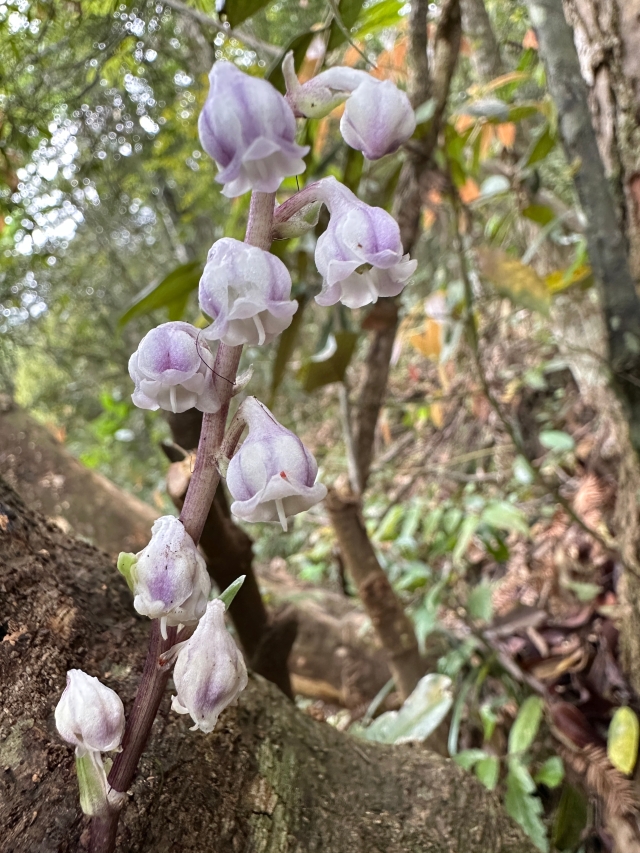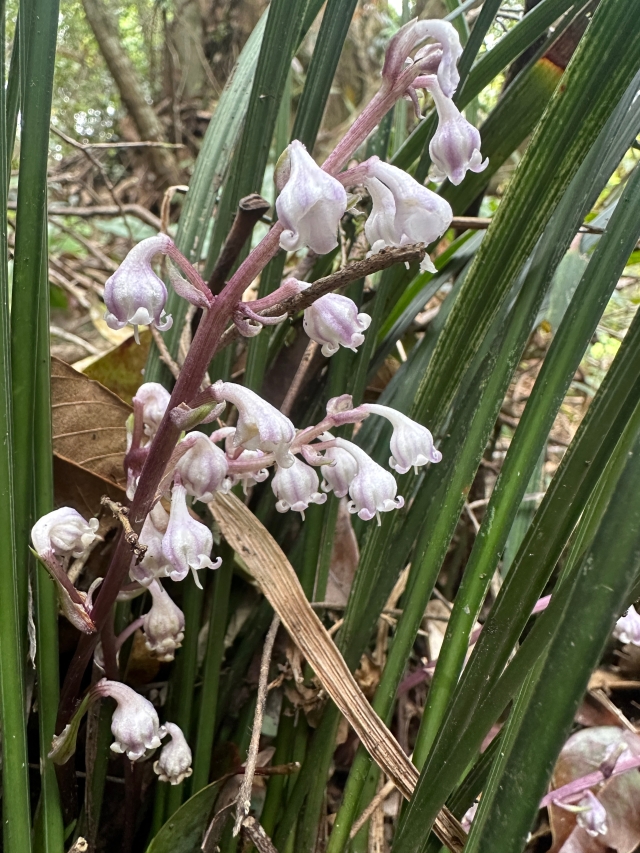Recently, a new plant species named Ophiopogon guangzhouensis, or "Guangzhou Mondo Grass," was discovered in the Chenhedong Provincial Nature Reserve in Conghua District, Guangzhou, South China's Guangdong Province.

Ophiopogon guangzhouensis
This marks the third new plant species identified in Guangzhou over the past decade, following the discoveries of Viola qingruii and Loropetalum axillare. The finding enriches Guangzhou's germplasm resources and adds to the biodiversity of the Ophiopogon genus in China.
The discovery resulted from a year-long field survey led by Gan Xinjun, a senior forestry engineer and head of the Chenhedong Nature Reserve (陈禾洞省级自然保护区). The project aimed to catalog the area's plant resources comprehensively. During the survey, the research team was drawn to an unusual type of Ophiopogon grass that appeared different from the known varieties.
"It looked like an ordinary mondo grass, but something about it felt different," said a team member. Curious about its potential uniqueness, the team collected samples for further examination. After meticulous analysis and genetic sequencing, conducted in collaboration with Sun Yat-sen University and Zaozhuang University, the plant was officially named Ophiopogon guangzhouensis. The findings were published in the international botanical journal Phytotaxa.
Ophiopogon guangzhouensis bears a resemblance to Ophiopogon bockianus, but several distinctive traits set it apart. Its leaves are narrower, and the joints on its flower stalks are positioned higher up, near the middle or upper sections. Additionally, the filaments at the base of its stamens are fused, making it easy to differentiate from its relative.

Ophiopogon guangzhouensis
The discovery of Ophiopogon guangzhouensis not only enhances plant biodiversity in Guangzhou and across China but also provides new material for studies on biological evolution and ecosystem stability.
"This new species is one of the significant achievements of our field research efforts over the past decade. It also reflects the progress of ecological development in our quest for a greener Guangzhou," said Gan Xinjun, co-first author of the research paper and head of the nature reserve. "We are honored to name it after Guangzhou. This discovery is a precious gift from nature."
Gan also emphasized the species' ecological and medicinal potential. "Mondo grasses are excellent for landscaping and have notable medicinal properties, which could offer future opportunities for both research and practical applications," he added.

Ophiopogon guangzhouensis
The discovery of Ophiopogon guangzhouensis highlights the importance of continued biodiversity research and conservation efforts, showcasing the success of Guangzhou's green initiatives and the region's commitment to preserving its natural heritage.

Ophiopogon guangzhouensis
Reporter | Chen Longyan
Photo | Su Yunhua, Zhong Xiaoyu with Nanfang Daily, and correspondent Lin Yuanxuan
Editor | Monica, James
















